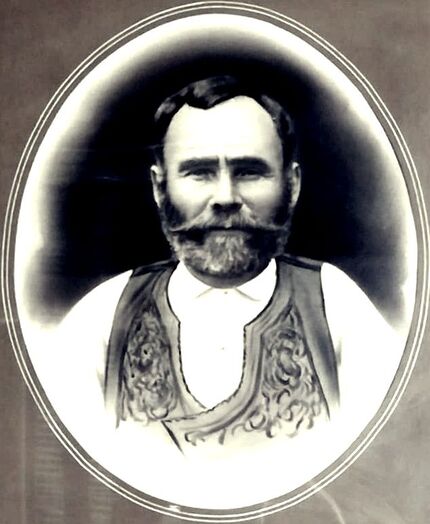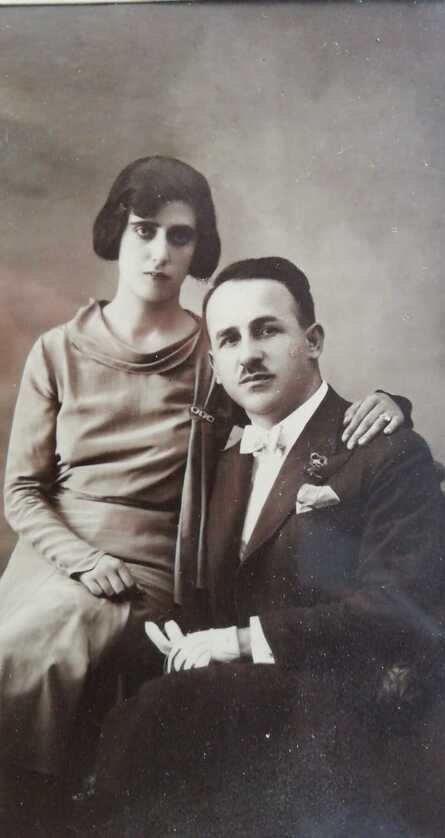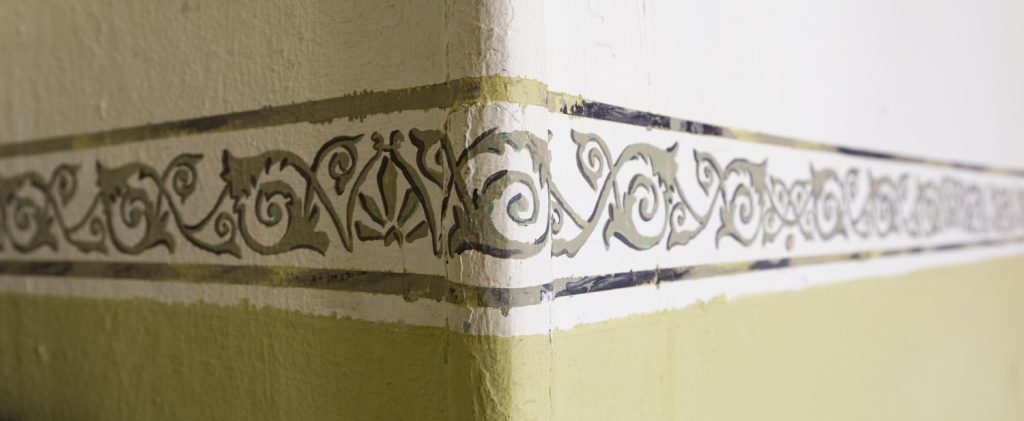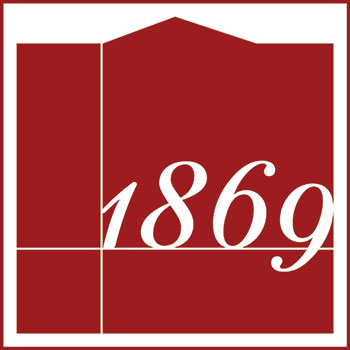
So, one day, Tassos ran.

So, one day, Tassos ran.
He paid a visit to his brother and never returned. Barba-Vassilis got furious. Not only because he had two hands less to help him with the harvest, but mostly because that brat had disobeyed the head of the family. So, he disinherited Tassos and decided never to speak to him again.
Tough luck for Tassos, who was left without any money in the big city -the place to be, at the time. Thankfully, he stayed at his brother’s house and Nikos was more than happy to add an extra plate at his table.
In time, Nikos got married to Nina, a fascinating, cultured woman with plenty of interests. They both helped Tassos to prepare for the exams needed to attend the university, to study horticulture.
During the following years, Nina tried to re-establish the relations between Barba-Vasilis and Tassos, pointing-out the fact that Tassos was not a loser, but a gentleman, a socially accepted by the Athenian bourgeoisie student of the university. But no matter how hard she tried, Barba-Vasilis wouldn’t change his mind. Even when he was told that a horticulture graduate was something useful, not to mention that -at the time- a horticulturalist was also a veterinarian, who could help birth the family’s sheep(!).
Until...
Tassos went to Germany, to get a PhD on oenology. A rare -and quite sexy- expertise.
This title somehow softened Vasilis’ heart. He now had TWO doctors in the family. Something he could brag about and gain his honour back.
Mina found a woman for Tassos. Tassia (how strange, a couple with same names!) was on her 30’s -which was something …“eww” at the time- but she was from a wealthy family. Tassos liked her and, as soon the marriage got arranged, Tassos, Tassia, Nikos and Mina went back to the village to invite the whole family at the wedding. (Another family story details how my grand-mother freaked-out by this trip, as the village was too… rustic for her manners.)
Barba-Vasilis then understood he couldn’t do much. After all, Tassos had managed to find his way in Athens, he had established a good reputation, he was getting married to a woman with a good dowry, he could make good wines and -goodness- he was a doctor! More-over he was given a teacher’s seat at the university, teaching oenology.
So Barba-Vasilis decided to give his blessing to the happy couple.
...But not a single drachma.
He paid a visit to his brother and never returned. Barba-Vassilis got furious. Not only because he had two hands less to help him with the harvest, but mostly because that brat had disobeyed the head of the family. So, he disinherited Tassos and decided never to speak to him again.
Tough luck for Tassos, who was left without any money in the big city -the place to be, at the time. Thankfully, he stayed at his brother’s house and Nikos was more than happy to add an extra plate at his table.
In time, Nikos got married to Nina, a fascinating, cultured woman with plenty of interests. They both helped Tassos to prepare for the exams needed to attend the university, to study horticulture.
During the following years, Nina tried to re-establish the relations between Barba-Vasilis and Tassos, pointing-out the fact that Tassos was not a loser, but a gentleman, a socially accepted by the Athenian bourgeoisie student of the university. But no matter how hard she tried, Barba-Vasilis wouldn’t change his mind. Even when he was told that a horticulture graduate was something useful, not to mention that -at the time- a horticulturalist was also a veterinarian, who could help birth the family’s sheep(!).
Until...
Tassos went to Germany, to get a PhD on oenology. A rare -and quite sexy- expertise.
This title somehow softened Vasilis’ heart. He now had TWO doctors in the family. Something he could brag about and gain his honour back.
Mina found a woman for Tassos. Tassia (how strange, a couple with same names!) was on her 30’s -which was something …“eww” at the time- but she was from a wealthy family. Tassos liked her and, as soon the marriage got arranged, Tassos, Tassia, Nikos and Mina went back to the village to invite the whole family at the wedding. (Another family story details how my grand-mother freaked-out by this trip, as the village was too… rustic for her manners.)
Barba-Vasilis then understood he couldn’t do much. After all, Tassos had managed to find his way in Athens, he had established a good reputation, he was getting married to a woman with a good dowry, he could make good wines and -goodness- he was a doctor! More-over he was given a teacher’s seat at the university, teaching oenology.
So Barba-Vasilis decided to give his blessing to the happy couple.
...But not a single drachma.
Tassos and Tassia were a happy couple. With Tassias’ money, they bought a house in the centre of Athens. A neoclassical house that -despite its age- had the charm of an elegant construction, and was built at the perfect spot, the old centre. Unfortunately it’s beautiful Athenian backyard got covered with a new extension. New rooms and a bathroom were required. Further works gave the newly-wed couple a proper residence, with electricity, gas and running water, roomy enough to host high-society parties -and a family.
Tassos installed a wine lab on the first floor and pretty soon he got the nearby market’s attention and respect.
But even though Tassos’ business was blooming, the neighbourhood wasn’t what we would call “family friendly”. Psirri had long-lost its glory. The streets were full of …blood thirsty gangsters. The Koutsavakides wouldn’t harm the residents. Instead, they would protect them from common criminals. But they were unemployed, hashish-smokers, wine-lovers, notorious for seeking troubles bullying any unsuspected person they might meet on the street, including my grand-parent’s guests.
Tassia wasn’t happy with that, not only because she couldn’t invite her new high-society friends to her house. When she got pregnant, she started thinking about moving to another, classier neighbourhood.
Their only son, Vasilis, was born, just a few months before Greece got engaged in WW2.
It is not clear if they moved to Thission before, during or after the German occupation. But we know that by 1949, when the civil war was over, the apartment was rented and 4 families were living in 80sq.m.! Tassos kept his wine-lab on the first floor until he was given the director’s seat at the National Wine Institute. Tassos died in the 60’s. His son, my father, loved the house he was born in, although he never returned. I inherited the house in 1989, along with the advice not to sell it for any reason, except for “sickness or prison”. An advice I plan to follow.


Tassos and Tassia were a happy couple. With Tassias’ money, they bought a house in the centre of Athens. A neoclassical house that -despite its age- had the charm of an elegant construction, and was built at the perfect spot, the old centre. Unfortunately it’s beautiful Athenian backyard got covered with a new extension. New rooms and a bathroom were required. Further works gave the newly-wed couple a proper residence, with electricity, gas and running water, roomy enough to host high-society parties -and a family.
Tassos installed a wine lab on the first floor and pretty soon he got the nearby market’s attention and respect.
But even though Tassos’ business was blooming, the neighbourhood wasn’t what we would call “family friendly”. Psirri had long-lost its glory. The streets were full of …blood thirsty gangsters. The Koutsavakides wouldn’t harm the residents. Instead, they would protect them from common criminals. But they were unemployed, hashish-smokers, wine-lovers, notorious for seeking troubles bullying any unsuspected person they might meet on the street, including my grand-parent’s guests.
Tassia wasn’t happy with that, not only because she couldn’t invite her new high-society friends to her house. When she got pregnant, she started thinking about moving to another, classier neighbourhood.
Their only son, Vasilis, was born, just a few months before Greece got engaged in WW2.
It is not clear if they moved to Thission before, during or after the German occupation. But we know that by 1949, when the civil war was over, the apartment was rented and 4 families were living in 80sq.m.! Tassos kept his wine-lab on the first floor until he was given the director’s seat at the National Wine Institute. Tassos died in the 60’s. His son, my father, loved the house he was born in, although he never returned. I inherited the house in 1989, along with the advice not to sell it for any reason, except for “sickness or prison”. An advice I plan to follow.

*It is impossible to estimate how many people have ever lived in the house. But I would be curious to hear all the stories these walls have to tell… Tales from a distant past, in 1869, when a Russian aristocrat first-entered the door of his new home in Athens, perhaps a description of Barba-Vasilis’ first visit, sad stories from the 1942 famine, or even the funny adventures from the 70’s, when a hippies’ international commune chose these rooms to celebrate life…
